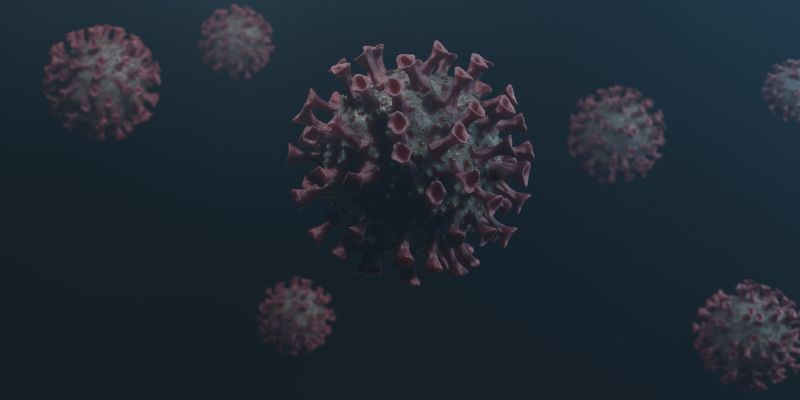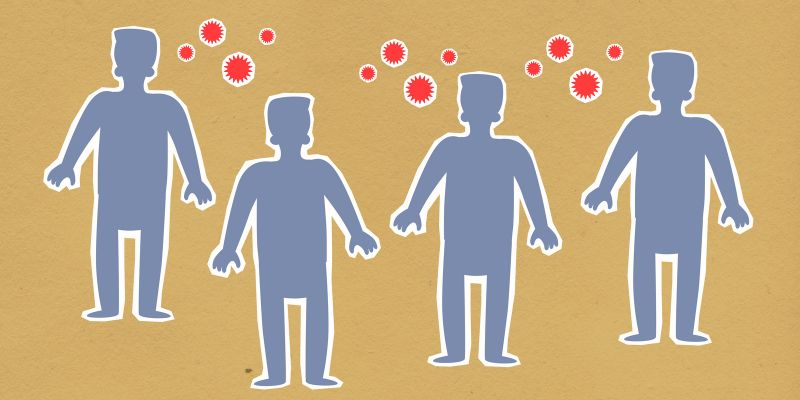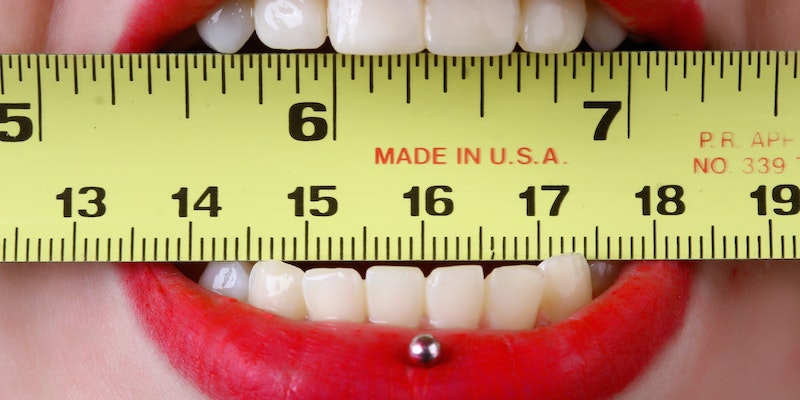Human Papillomavirus (HPV) is the most common group of viruses. It is transmitted through intimate skin-to-skin contact with the infected person. Though the virus does not cause any serious problems in many people, HPV causes serious genital warts or cancer. HPV vaccine is the only way to prevent the effects of this virus.
HPV is a small, non-enveloped DNA virus affecting mucosal or other skin cells. There are about 100 different types of HPV. Many people can get infected by the virus without developing symptoms, while others may face serious medical issues. The HPV vaccine and regular check-ups can lower the risks of getting infected with HPV.
The virus is spreading and affecting hundreds of people around the world. If you want to protect yourself from HPV, learn more about this virus, its transmission, and much more here with us. So, let's get into the details without wasting another second!

What is HPV (Human Papillomavirus)?
Human papillomavirus, or HPV, affects different body parts of the patient. 100+ strains of the HPV virus have been discovered, and many of them cause warts on different body parts (face, hands, feet, and genital organs). Fortunately, most of these HPV strains are harmless, including those which cause genital warts.
Conversely, a few strains of HPV are very harmful as they can cause cancer. But, with early diagnoses, treatment, and care, patients can recover.
As per the data, 43 million people were infected with HPV, and most patients were in their early 20s or teens. HPS is a different virus than HSV or HIV. Vaccination and medication are available for HPV, which can effectively prevent this disease.
How Is Human Papillomavirus Spread?
The virus spreads through close skin-to-skin touching. The infected person may not have developed any HPV symptoms (warts or cancer) of HPV but can transfer the virus to others. You can develop the signs of HPV at least after six months you get infected.

What Are The Different Types of HIV?
HP virus lives in the flat, thin-walled cells called epithelial cells found on the skin surface and inside the throat and mouth. As mentioned, there are 100+ types of HPV; 60 cause warts around different body parts, while 40 get into the mucous membranes and can cause cancer.
HPV 16 and 18 are high-risk strains that cause cervical cancer. Besides that, 58, 52, 45, 33, and 31 are the other high-risk strains of HPV. The low-risk strains 6 and 11 cause the warts and rarely cause cancer. The warts appear after months or even years you have got infected.
Who Can Get Infected With HPV?
Anyone who comes in contact with an HPV patient can get HPV. Similarly, the persons infected with HPV transfer the virus to other people living around them.
HPV in Men
HPV can affect both men and women, but the virus's effect on men is less harmful than women. Mostly, the virus causes warts, which can be cured or cleared with time. In severe conditions, the virus can cause cancer of the head, neck, or genital parts.
The immune system can successfully fight against HPV, but only in a few cases did the virus take over the body and cause serious health issues. The only way to keep yourself protected is vaccination.
HPV in Women
Women are at greater risk of HPV as it causes cervical cancer in females in severe cases. Therefore, if you are doubted, go for the HPV and Pap smears tests. With the help of these tests, the changes in the body cells can be diagnosed, and treatment can be started early. Besides that, like males, females can also develop warts around different body parts, which are life-threatening.
How To Treat The Human Papillomavirus?
Well, there is no medicine for the virus, but the HPV vaccine can help to treat the infection to some extent. Also, the virus leaves the body after two years, even if you are not taking any medication.
If you have developed warts, they will also go away without treatment. You can use different salicylic acid products to treat warts, including trichloroacetic acid and podofilox.
Testing for HPV (Human Papillomavirus)
There is no blood test for HPV, and cervical testing is part of HPV testing. In cervical screening, a sample of a few cells is taken from the patient's cervix and tested for HPV. All women aged 25 to 64 can go for the cervical screening.
It is the way to get yourself diagnosed with HPV, and if you find yourself infected, you can start the medication early. With proper medication and care, the infection can be cured easily. Otherwise, you might develop cancer.
HPV Vaccine
Two prophylactic vaccines have been developed for HPV since 2006. The vaccines don't have any genetic material or living organisms. Therefore, they cannot cause any infection. The two available vaccines are:
- The bivalent vaccine is composed of HPV types 18 and 16. It is formulated with a novel adjuvant (AS04) and contains monophosphoryl lipid A (MPL) and aluminum hydroxide.
- The tetravalent vaccine contains four HPV types (18, 16, 11, and 6). Both vaccines can effectively neutralize the antibodies to HPV.
Conclusion:
HPV belongs to a very common group of viruses that are affecting hundreds of people around the globe. The virus may not cause serious problems, but a few strains can cause cancer or genital warts. There are no obvious HPV symptoms, as many people can have it without facing any serious problems, but a few can develop warts.
There is no treatment for the virus as the virus can be cleared out of the body within two years without causing any serious issues. But, to be safer, it is highly recommended to get vaccinated and go for check-ups regularly.




